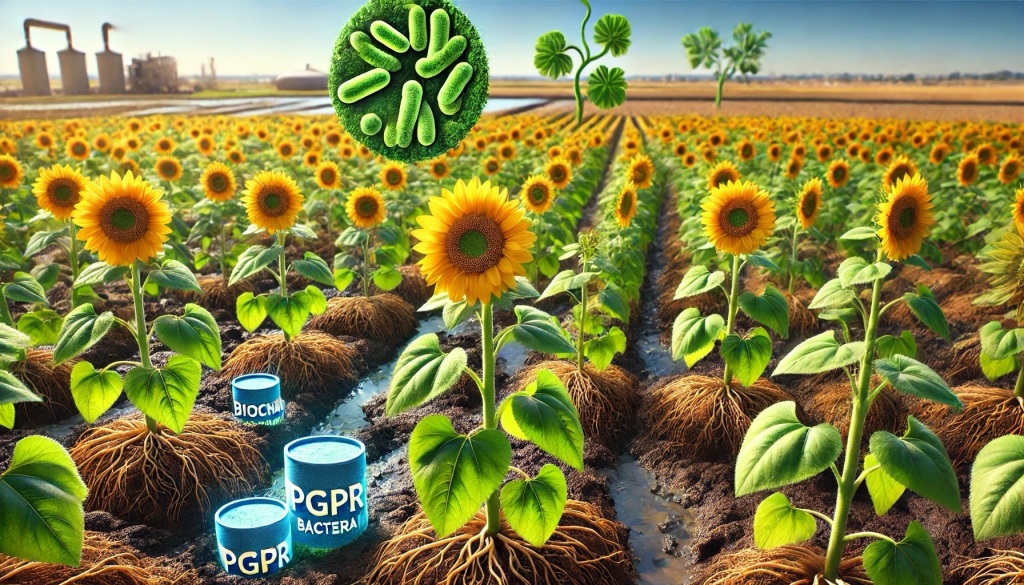Alshaal, et al (2024) Strengthen sunflowers resilience to cadmium in saline-alkali soil by PGPR-augmented biochar. Ecotoxicology and Environmental Safety. https://doi.org/10.1016/j.ecoenv.2024.116555
A recent study published in “Ecotoxicology and Environmental Safety” explores how integrating biochar and plant growth-promoting rhizobacteria (PGPR) can boost sunflower resilience to cadmium (Cd) in saline-alkali soils. Conducted in the Nile Delta’s Kitchener drain region, the study tested various biochar and PGPR combinations to mitigate Cd’s adverse effects on sunflower growth. The most effective treatment involved applying 10 tons of biochar per hectare combined with PGPR-3, resulting in significant improvements in soil health and plant performance.
The research found that this combination enhanced soil respiration, enzyme activities, and nutrient use efficiency while reducing soil salinity, Cd toxicity, and electrical conductivity. Treated sunflowers showed better root systems, increased tolerance to saline and Cd conditions, and higher yields. Specifically, Cd content in roots, shoots, and seeds decreased by over 50%, and sunflower seed and oil yields increased by about 76%.
This innovative approach leverages the synergistic benefits of biochar and PGPR, offering a sustainable solution for cultivating sunflowers in contaminated, saline-alkali soils. The findings highlight the potential of biochar and PGPR to improve soil quality, enhance crop resilience, and promote environmental sustainability in challenging agricultural landscapes.






Leave a comment